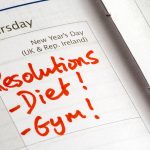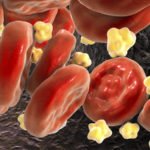Many people find themselves taking aspirin or ibuprofen on a regular basis at the recommendation of their doctor for one reason or another. But that may not be the best alternative for men. And I’m not talking about the usual NSAID concerns related to the risk of internal bleeding, which rises as we age. No, I’m talking about something far worse (at least for men): a new study that links these meds with erectile dysfunction (ED).
The research, conducted at Kaiser Permanente Los Angeles Medical Center, found that the men participating in the study who took nonsteroidal anti-inflammatory medications (NSAIDs) on a regular basis were 38 percent more likely to have erection difficulties than their counterparts who rarely or never use these drugs. This was not the result the researchers expected, as ED is believed to be a result of inflammation.
The study involved 80,966 men between the ages of 45 and 69 and began in 2002. Approximately 47 percent of the volunteers were deemed regular NSAID users — meaning they reported taking NSAIDs at least five days a week or had a prescription for frequent, daily use. The NSAID category covers such common medications as aspirin, ibuprofen (Advil and Motrin), and naproxen (Aleve and Anaprox).
While the findings do not prove that NSAIDs cause ED, they definitely provide a cause for concern. Many men are placed on NSAID regimens as they get older to alleviate the symptoms of chronic illnesses such as arthritis or as a prophylaxis to decrease their risk of heart attacks and stroke. Of the younger men in the study, approximately 33 percent were regular NSAID users and 13 percent dealt with ED. Of the older men in the study, however, nearly 55 percent were using NSAIDs regularly, and 42 percent of them experienced ED.
Aside from ED, NSAIDs also cause other problems when taken on a regular basis. They are destructive to intestinal flora, which are essential to our health and act as a barrier to the growth of dangerous pathogenic microbes that can cause disease and infection. They also raise your risk of developing Crohn’s Disease and a host of other digestive disorders.
So what are the alternatives to taking NSAIDs? There are plenty of natural substances that will do all of the things NSAIDs can do for your body and more, safely. What you choose to take, or in some cases use topically, will depend mainly on the reasons you have been using the NSAIDs. St. John’s Wort, for example, is primarily for the relief of nerve-related pain that comes along with issues such as sciatica, neuralgia, arthritis, and rheumatism. MSM, also known as “organic sulfur,” is widely used around the world for the relief of pain from arthritis, back pain, or general muscle pain.
Several substances provide anti-inflammatory properties, as well as other benefits. For instance, calendula not only acts as an anti-inflammatory, but also offers pain relief and is an antispasmodic. Wintergreen oil fights off inflammation as well as arthritis pain, joint stiffness, and muscle spasms. Emu oil is a natural emollient used by Aboriginal Australians for centuries because of its incredible healing and anti-inflammatory properties.
As for taking aspirin to protect your heart, think again. It does thin the blood, but even a child’s-size dose causes some degree of intestinal bleeding. Instead of aspirin, proteolytic enzymes such as nattokinase and Seaprose-S are more effective and safer. They not only relieve pain, but also improve the ability of blood to flow, dissolve plaque in the arterial walls, reduce systemic inflammation in the body and the circulatory system, and help break down scar tissue in the arterial walls. And if your problem is joint pain, you have options such as boswellia, ginger, chicken cartilage type II, and cetyl myristoleate.
Ultimately, whether you have experienced ED issues or not, there is no question that you are better off skipping the NSAIDs. And for ED sufferers, you may end up alleviating two problems at once.












For all of those who think
For all of those who think Male performance Products as a solution to erectile dysfuncion, please read. Unfortunately there are drugs out there that say “may cause sexual side effects.” I took one of these prescrption drugs and now that has ruined my ability to do the deed without assistance. It sucks that this happens, but not being able to get it up is not the fault of the person nor does it make them less of a man,It’s a pity that some people do not use to go to the doctor for these kinds of problems. They are perfectly able to enjoy their sexual life. So, look for help and don’t be afraid to ask for advice.. Many times its because of physiological problems or medical reasons.